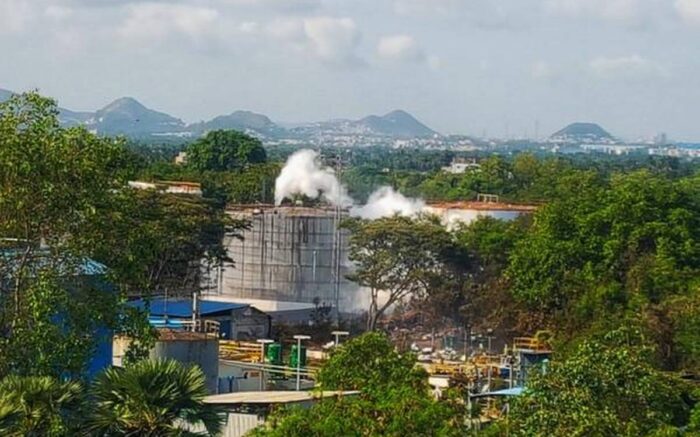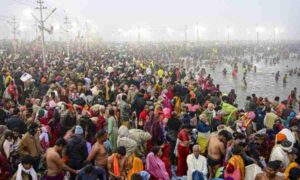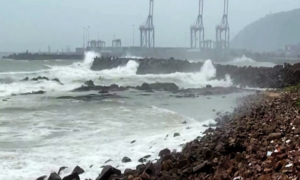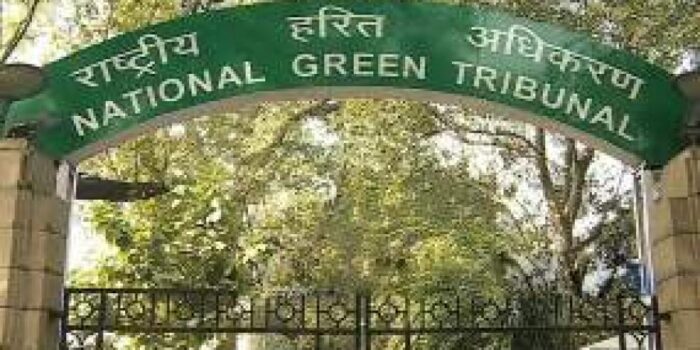
The National Green Tribunal has passed important directions in the LG Polymers case in which 12 persons died and more than 1000 were reported sick as a result of leakage of hazardous gas Styrene during early hours of 7th May, 2020. While an Application was filed by EAS Sarma a former bureaucrat and a resident of Vishakhapatnam on 7th May itself, the National Green Tribunal on the very next day i.e 8th May, 2020 also took Suo Motu cognizance of the said leakage.It passed an interim Order whereby it constituted a six-member Committee headed by Justice B. Seshasayana Reddy, former Judge, A.P. High Court to visit the site and give a report on the following a. The sequence of events; b. Causes of failure and persons and authorities responsible therefor; c. Extent of damage to life, human and non-human; public health; and environment – including, water, soil, air; d. Steps to be taken for compensation of victims and restitution of the damaged property and environment, and the cost involved; e. Remedial measures to prevent recurrence; f. Any other incidental or allied issues found relevant. The Tribunal also directed the Company to deposit an initial amount of Rs. 50 Crore with the District Magistrate, Vishakhapatnam The amount was fixed having regard to the financial worth of the company and the apparent extent of the damage caused.
LG Polymers filed a Civil Appeal Diary No(s) 11327/2020 before the Supreme Court which came up for hearing on 19.05.2020. The Supreme Court gave liberty to the Company to raise appropriate contentions before the NGT.
The MoEF&CC in it’s Response stated that the gas in question was a Hazardous Chemical and safety measures ought to have been adopted in the case. The unit falls under category ‘A’ of the EIA Notification, 2006 and the company had applied under the Violation Category.
The NGT showed it’s displeasure that the Company had failed to file it’s response. NGT in it’s Order clearly mentioned that there was no reason for the Company not to give any response, except unreasonable and irresponsible attitude of avoiding patent liability on a self serving hyper technality. It also rejected the plea of the Company that the NGT was bereft of any power to take Suo Motu cognizance and linked it’s right to take upon any matter with inalienable right of the victims to have access to justice by saying “If NGT were powerless to institute suo-motu proceedings where so warranted, as in the present case, it would be robbed of all its efficacy, because then the situation would be that if environmental damage causes loss of life, public health and property, the court can grant relief only if the victims found the means to approach it first. Such limitation, to a large extent, would emasculate NGT’s raisond’etre, and render it nugatory and futile.”
The NGT further added that if the Tribunal is prevented from instituting suo-motu proceedings, such issues and violations would remain unaddressed, citizens’ inalienable right to life and other rights will stand jeopardized, and the serious and irreversible environment damage would continue unchecked.
On the role of Govt. officials who had permitted the Company to run it’s unit without statutory clearances the NGT was of the view that further remedial action needed to be taken of bringing to justice erring officers of authorities in the State of Andhra and liability of the State or officers being further gone into.
NGT also felt a need for rehabilitation plan for utilizing the interim and further compensation.
The NGT in it’s Order discussed the observations of the Joint Committee and the Tribunal was of a view that:-
· The observations of the Committee were based on site inspection by independent experts of unquestioned credibility.
· Observations to the extent of holding that the Company liable for the damage caused on account of leakage of gas to the life, public health and the environment corroborate the stand of the MoEF&CC and the State PCB.
· The company has operated without EC, and
· The State PCB on account of its ignorance of law or otherwise gave ‘Consent to Establish’ and ‘Consent to Operate’ in violation of law
On the issue of liability of the Company the NGT observed that the Company had a strict and absolute liability for the environmental damage and consequential loss including to life and public health in the case. Burden of proof to show that it has no liability was on the company. Overwhelming material establish the liability of the company.
On the interim amount of Rs. 50 Cr which was ordered to be deposited in it’s earlier Order, NGT directed that this amount should be appropriated towards part liability and interim compensation, which would be without prejudice to final liability being quantified based on further study and proceedings under any other law.
After hearing the Parties the NGT issued certain important directions which are as follows:-
(i) “The amount of Rs. 50 crores deposited by the Company with the District Magistrate, Vishakhapatnam will stand appropriated towards part liability and interim compensation to be spent for restoration of the environment and compensation for victims in accordance with the restoration plan to be prepared.
(ii) Restoration plan may be prepared by a Committee comprising two representatives each of MoEF&CC, CPCB and three representatives of State Government to be named by the Chief Secretary, including the District Magistrate, Vishakhapatnam and such other concerned Departments within two months from today. MoEF&CC will be the nodal agency for the purpose.
(iii) Final quantification of compensation may be assessed by a
Committee comprising representatives of MoEF&CC, CPCB and NEERI. The said Committee will be at liberty to associate/co-opt any other expert institution or individual. The Secretary, MoEF&CC may ensure constitution of such Committee within two weeks from today. The Committee may give its report within two months thereafter. MoEF&CC will be the nodal agency for the purpose.
(iv) The Chief Secretary, Andhra Pradesh may identify and take
appropriate action against persons responsible for failure of law in permitting the Company to operate without statutory clearances within two months and give a report to this Tribunal
(v) In view of the stand of the State PCB and the Company that
it will not recommence its operation without requisite statutory clearances, we direct that if any such statutory clearances are granted and the Company proposes to recommence, this aspect must be brought to the notice of this Tribunal so that compliance of law is ensured.
(vi) The MoEF&CC may also constitute an Expert Committee to
suggest ways and means to revamp monitoring mechanism to check and prevent violation of environmental norms and preventing any such recurrence in future in any of the establishments dealing with hazardous chemicals. A special drive may be initiated in this regard. An action taken report may be furnished within three months from today.
(vii) This order will not prejudice any criminal or other statutory
proceedings in accordance with law.”
[the_ad id=’22723′]

















